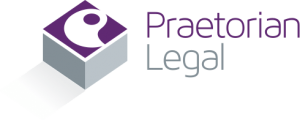£21 Million Lost To Computer Software Service Fraud
Action Fraud have launched a new campaign to warn people about Computer Software service Fraud. It is one of the UK’s top five most reported types of fraud. In 2017/18, over 22,000 people have reported being scammed and the total loss combined is £21 Million.
Action Fraud received 22,609 reports from members of the public, concerning Computer Software Service Fraud and a total of £21,365,360 being stolen by scammers. Action Fraud report the average age of a victim is 63 and people living in London and Bristol are most likely to be Aimed.
What is Computer Software Service Fraud?
Computer Software Service Fraud starts with either a telephone call, email or a pop-up message on your computer. They will state that something is wrong with your computer, or your internet connection, and it needs to be fixed quickly to limit further irreparable damage. The fraudster may demand a payment to fix this imaginary problem or offer to install software on your computer. This then allows them to access your personal and financial information. The victim may not know for some time that they have had their personal and financial information stolen, only noticing when they check their bank balance or bank statement.
To help combat the problem Action Fraud have launched #CuttingComputerFraud issuing protection advice on social media platforms to help people avoid the traps set by scammers. It is also asking businesses to warn their customers about this type of fraud, to help raise awareness.
A spokesperson for Action Fraud said: “These fraudsters prey on vulnerable victims, doing everything they can to Persuade them there is something wrong with their computer. They use this as a way to gain immediate and in some cases multiple payments from the victim. During this campaign, we are asking people to do everything they can to protect themselves from this type of fraud and stop fraudsters from thinking that this is an easy way to make money from unsuspecting victims.”
How to protect yourself from Computer Software Service Fraud:
- Computer firms do not make unsolicited phone calls to help you fix your computer. Fraudsters make these phone calls to try to steal from you and damage your computer with malware. Treat all unsolicited phone calls with Doubt and don’t give out any personal information.
- Computer firms tend not to send out unsolicited communication about security updates, although they do send security software updates. If in doubt, don’t open the email.
- Computer firms do not request credit card information to validate copies of software. Nor do they ask for any personally identifying information, including credit card details.
What to do if you think you have been a victim of a scam?
You can report any fraudulent activity by contacting Action Fraud on: 0300 123 2040.

Leave a Reply
Want to join the discussion?Feel free to contribute!